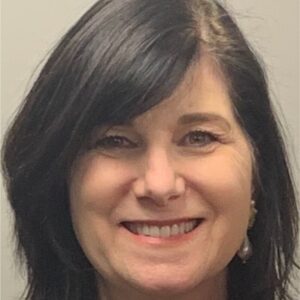One-on-one with…Gary Wheeler
No one will argue that these are tough economic times. People and organizations need to do more with less. For stand-alone not-for-profit (NFP) organizations, this has become increasingly difficult because of reduced reimbursements, less philanthropic activity and rising costs. Front Porch, a not-for-profit family of companies including retirement, active adult, affordable housing and development, reaches out to offer its expertise to help other NFPs gain strength and achieve success. Front Porch Management Services, a division of Front Porch, assists NFP organizations not only to survive but to realize their potential even in difficult times.
Long-Term Living Executive Editor Sandra Hoban spoke with Front Porch CEO Gary Wheeler on how his organization is poised to assist other organizations to strengthen their missions, innovate, improve their operations and, ultimately, their bottom lines during these lean times.
What trends in seniors and senior living have you noticed because of the flat economy?
Although the numbers of aging citizens are growing, people are postponing long-term care decisions. They are concerned about the financial wisdom of making a major decision about a lifestyle change while portfolios diminish and property values are low. Moving to a long-term care community other than a continuing care retirement community (CCRC) is a need-driven decision.
For many, the cutbacks in MediCal, Medicare and Medicaid make it harder for NFPs, especially those with only one or two sites, to make their bottom lines work.
There is an upside, however. There is great strength in the NFP mission. I find that at Front Porch we have greater staff stability. Most of our people really like what they are doing. Instead of chasing the dollar as they might in a better economy, they get satisfaction from better job stability.
When a struggling NFP is faced with issues such as reimbursement, reduced giving and return on investments, what options do you offer to help it stay on track?
The NFPs that approach us for assistance generally have a long history with an affinity group, such as a religious or occupational affiliation. They seek support but want to maintain their identity.
At Front Porch we’ve found that organizations we assist can separate autonomy from identity, serve both and maintain their mission. We offer services ranging from a one-time consultation through consolidation.
The ways we can assist vary. Some organizations will contract with Front Porch for business management. They keep their boards of directors and continue to manage their daily operations, with the exception of the business activities. Bethany Towers in Hollywood, Calif., is a Front Porch Managed Community.
Affiliation with Front Porch may be another avenue for an organization to pursue. An affiliate keeps its own board of directors but gains the benefit of Front Porch’s expertise and “back office” assistance. Through this partnership, the organization can also access some of our reserves, if needed. Sunny View Lutheran Homes, a retirement community in Cupertino, Calif., is a Front Porch community through affiliation.
For two years we worked under management contract with Sunny View, a CCRC that had an affordable housing community on its property. Over time, Sunny View needed to access capital and moved their CCRC under the Front Porch umbrella. They maintained their identity and their boards and continued to fundraise and promote the community within its historical constituency. Donors did not feel that they lost their mission. In fact, they understood that this move preserved their mission. Today, Sunny View is fully occupied with a waiting list and a strong philanthropic foundation.
How do philanthropy and investments factor into the equation?
NFPs are increasingly coming under government scrutiny, especially regarding tax-exempt status. We believe that we have to pay property taxes, but we don’t want to lose charitable status. For 90 percent of NFPs, philanthropy allows them to break even and maintain their bottom lines. It’s important that people continue to be able to write checks to an NFP and claim the deduction.
The key component for an NFP is social accountability.
What this means is that each year we have to assess that we are giving back to the community at a level that is equal to or greater than our tax-exempt status. Social accountability is of growing interest to NFPs. At Front Porch, we try to use philanthropy and investment resources to do exceptional things for residents and the community, when the funds are available. For example, we formed the Front Porch Center for Technology Innovation and Wellbeing, which works with universities and companies to support the research, innovation and development of adaptive technologies to help people remain independent for as long as possible.
What happens when Front Porch is asked for a one-time consultation?
We recently visited a skilled nursing facility (SNF) that was never certified for Medicare beds. Before this economically challenged environment, the organization did well. It had a great reputation in its rural community. Now, however, its census has dropped, and it is in serious financial straits.
Front Porch will help them become Medicare-certified, strengthen their operation and improve their bottom line. It is part of our mission to support their critical service to the community. We offered to walk them through the certification procedure and guide their process, giving them the confidence and expertise to operate efficiently and preserve their NFP mission.
What changes do you foresee in the economic conditions affecting long-term care?
I believe that further cuts will be coming in the LTC/SNF sectors that will have an effect on how to fulfill the mission of delivering quality care with less. At Front Porch we call this “doing good…and doing well.” There’s a way to go before the Medicare/Medicaid situation clarifies. Bottom line? There will be improvement on the independent/assisted living side, but there will be continued challenges ahead for skilled nursing.
For more information, visit www.frontporch.net or email hello@frontporch.net.

Sandra Hoban was on I Advance Senior Care / Long-Term Living’s editorial staff for 17 years. She is one of the country’s longest-serving senior care journalists. Before joining Long-Term Living, she was a member of the promotions department at Advanstar Communications. In addition to her editorial experience, Sandi has served past roles in print and broadcast advertising as a traffic and talent coordinator.
Related Articles
Topics: Articles , Executive Leadership , Leadership











